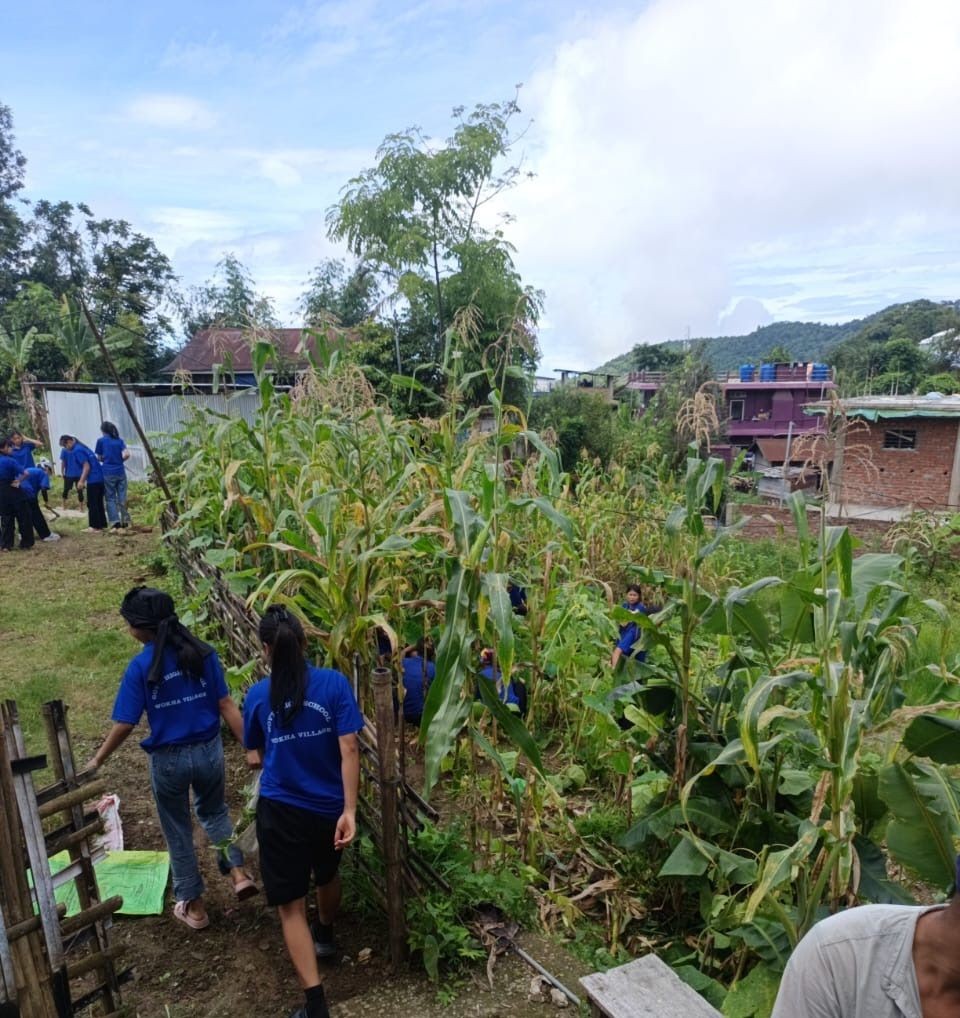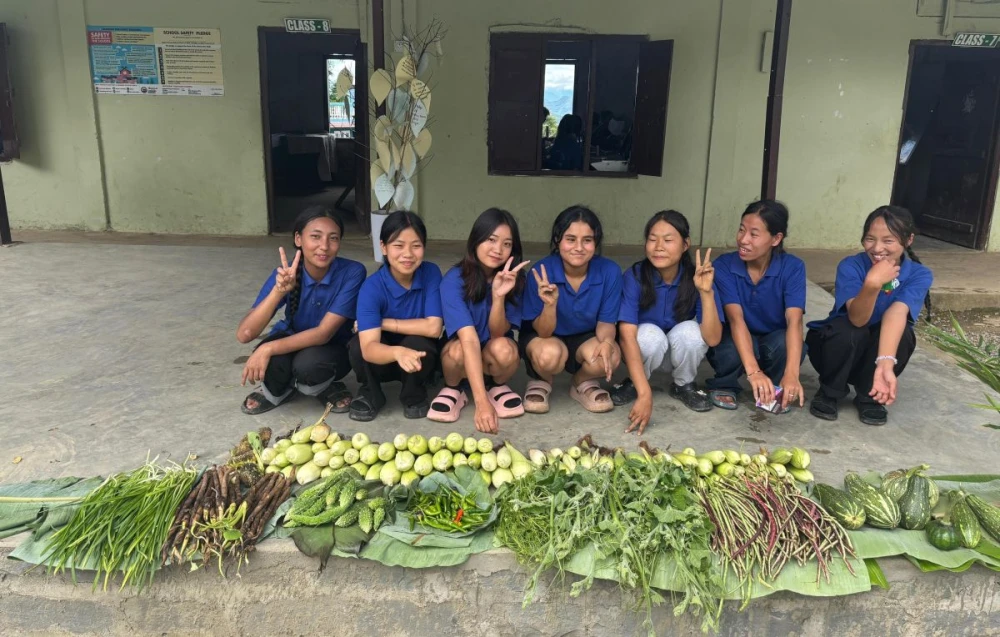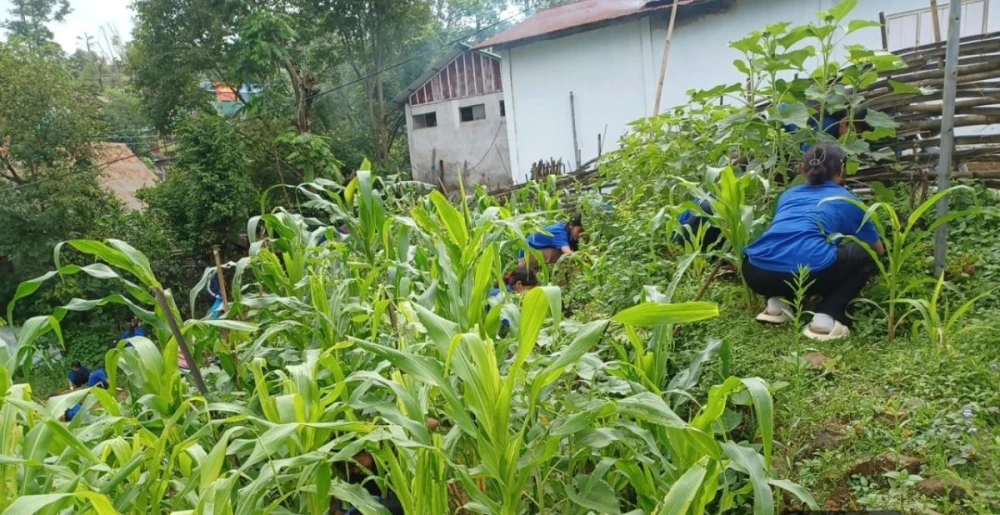PM-Shri Government High School in Wokha Village has initiated kitchen garden initiative for students.

Meribeni T Kikon
Wokha | July 27
A government school in Wokha Village, PM-Shri Government High School (GHS), has initiated an innovative kitchen garden that is redefining classroom learning by combining sustainability, teamwork, and hands-on agricultural experience.
The initiative, started earlier this year, involves students and teachers in cultivating vegetables and herbs in the school’s backyard. The garden is managed by students from Classes 6 to 10, divided into three houses Red, Blue, and Green with each house assigned its own plot of land. With about 40 members in each house, students take turns working on their plots during free periods.
Assistant Headmistress Loreni Ngullie said this concept is also supported and encouraged by the government and it aims to instil values of responsibility, cooperation, and environmental awareness among students. “The kitchen garden is more than just a cultivation initiative, it is a practical learning platform,” she stated.
Teachers, too, are actively involved, working alongside students to tend the garden. “Even the teachers participate in the harvesting. This helps keep everyone motivated and competitive,” Tsopoe added.

In June 2025, the School Management and Development Committee (SMDC), which includes members from outside the school, was invited to assess the produce from each house. Prizes sponsored by the Lady SMDC members, Eyingbeni Murry and Areni Murry were awarded to the student under the category from 1st, 2nd and 3rd, further encouraging student engagement.
The kitchen garden now grows a wide variety of vegetables including pumpkin, squash, different types of yams, corn, chilli, sunflower, brinjal, and more. What gets cultivated often depends on each house’s choice and planning.
This time, a large quantity of corn was harvested, were boiled, and shared among the students at school, turning the event into a shared celebration.

Additionally, a new herbal garden plot has recently been added to the backyard, where all three houses are allowed to grow and manage local herbs collectively.
Sustainability is a key component of the project. Some approved vegetables are sold, and the earnings are used to buy manure, which is then equally distributed among the houses for future cultivation. While seeds were previously collected by students and teachers, the school has now adopted seed-saving practices from their own harvested crops.
“This initiative is helping students connect with nature, understand food production, and take pride in their efforts,” said Tsopoe, expressing hope that more schools will adopt similar approaches.






